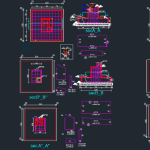Course Overview:
The “Hydraulic Engineering and Design of Channels and Waterways” course focuses on the fundamental principles of hydraulic engineering and its applications in the design of channels and waterways. The course aims to equip participants with the knowledge and skills necessary to analyze and design hydraulic systems effectively, facilitating efficient water resource management and optimal use of water.
Course Objectives:
• Understand the basic principles of hydraulic engineering and the hydraulic behavior of water.
• Learn methods for designing channels and waterways suitable for local conditions.
• Acquire skills for analyzing water flow and designing control systems.
• Evaluate the impact of different designs on water flow and the sustainability of water resources.
• Develop the ability to use hydraulic software for design and analysis.
Training Content:
• Introduction to hydraulic engineering.
• Properties of water and its behavior in waterways.
• Design of open channels and waterways.
• Hydraulic flow calculations and pressure distribution.
• Flow control systems.
• Study of environmental factors affecting waterway design.
• Use of hydraulic software for channel design and flow analysis.
• Case studies for the analysis and design of specific channels.
Target Audience:
This course is aimed at civil and environmental engineers, engineering students, researchers in hydraulic engineering, professionals in water resource management, and engineering project managers. The course is also beneficial for practitioners working in urban planning, development, and water management sectors.






